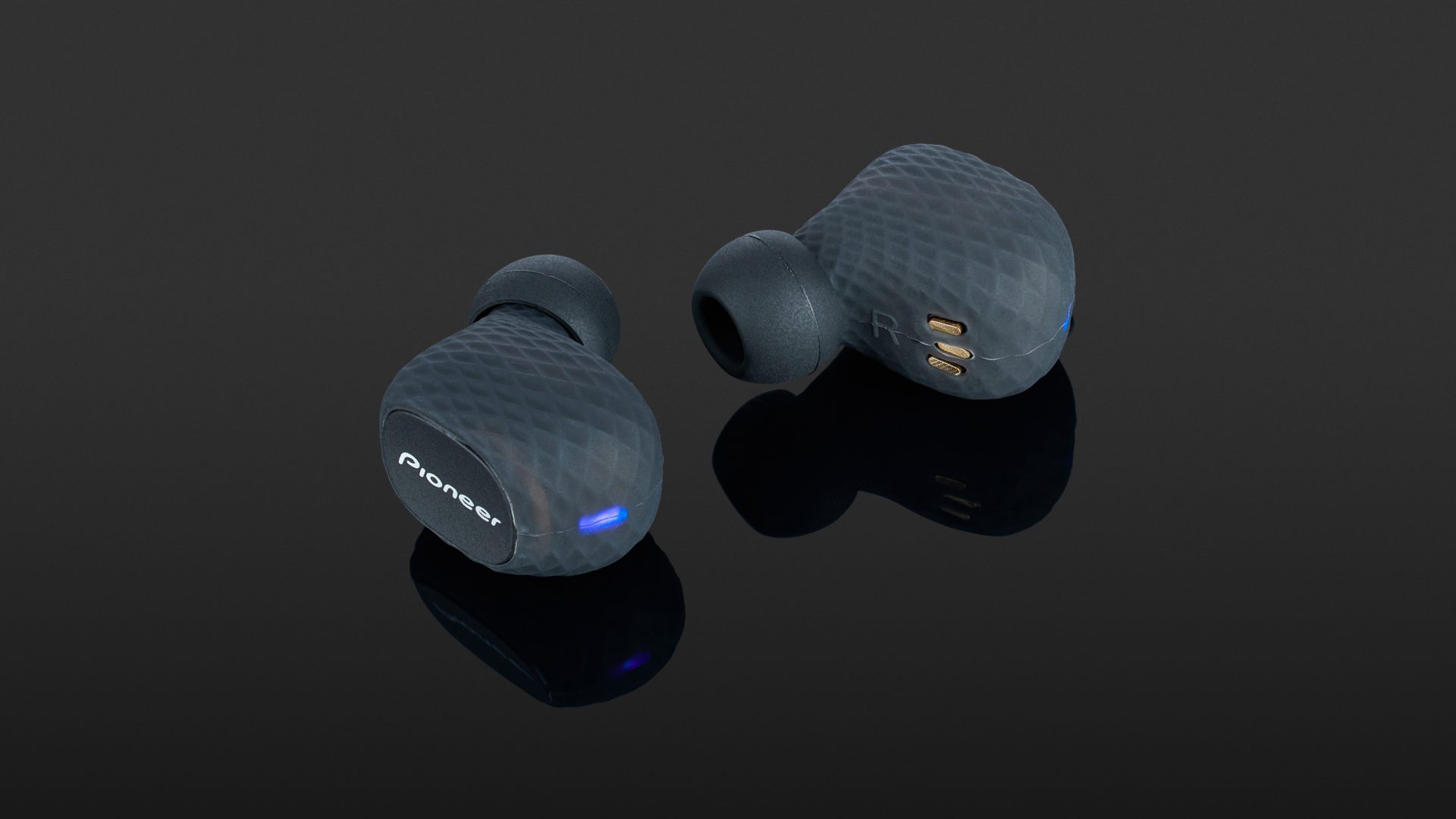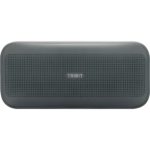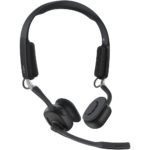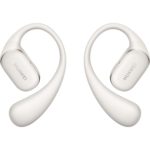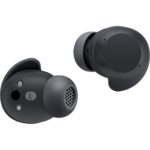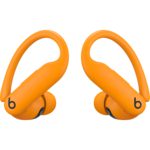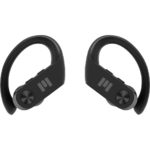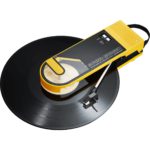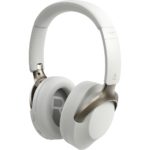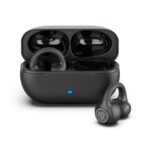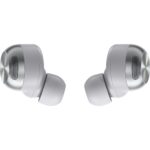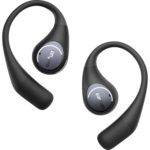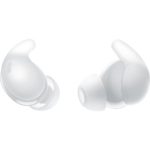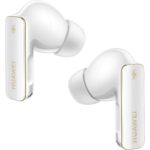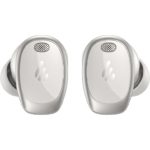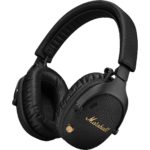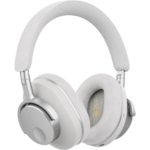The Pioneer SE-C8TW is quite large when you consider the size of the charging case. However, they work reliably except for the awkward in-ear fitting, but everything is where you’d expect it to me. The sound is assertive and clear, with full bass and radiant highs. The mids in between are somewhat lacking, with the overall sound profile thin and unbalanced. This is especially evident when the bass isn’t the driving force behind the source media.
These Pioneer SE-C8TW headphones are referred to as “Truly Wireless In-Ears”, suggesting they are a little more than the true wireless in-ear standard. Ultimately, however, it means much the same thing: no cables whatsoever. The SE-C8TW headphones deliver plenty of points to admire, but could still do with some improvement when it comes to sound.
First Impressions
True wireless in-ears are no longer a secret science, so you can expect the obvious when you open the box: in-ears, charging case, earpieces in small, medium and large, charging cable, documentation explaining the pairing process and so on. What surprises me about these Pioneer headphones at first glance is the sheer size of the hardware. The charging case is far beyond pocket-sized and must, therefore, be carried in a larger bag. But the in-ears themselves are also very good in terms of fit once you’ve settled on a suitable earpiece attachment. The silicone cover is very handy, while the button at the back of the in-ears clicks with a well-judged level of pressure. The overall result is eye-catching technology that looks both stable and aesthetically pleasing.
It’s advisable to place the in-ears horizontally in the ear (the Pioneer logo serves as a good guide for orientation), although this is rather uncomfortable for me. I achieved the best personal fit when I turned the in-ears to a ten o’clock orientation. However, you’ll have to find out what works best for you when you encounter these Pioneer in-ears.
Then comes the power-on and voice announcement that confirms pairing, left-right assessment and connection with the source – all simultaneously.
Music Performance
The SE-C8TW will delight the ears with powerful performance, strong bass and crisp treble. Clean Bandit’s “Solo” is a real hit when played via these, although it would be nice to hear a few more mids. They’re certainly lacking, so while the bass and highs unfold well, there’s something missing when playback should be full and warm. That’s a shame because if the mid-range was more pronounced, the SE-C8TW would sound very balanced and strong. Unfortunately, the sound is too thin and transparent, with the missing mids unable to be replicated by an equaliser. This is all the more unfortunate as I have slowly become accustomed to the size of these in-ears, which – thanks to their covering – don’t sit as conspicuously on the ear as I’d initially feared.
Good bass, good treble, little mid-range. Ultimately, I can only rate the sound as relatively good as there’s plenty of room for potential improvement.
Clicks on the Ear
As far as the operation of these in-ears goes, the standard usually is that a click on the left earpiece skips one track backwards, while a click on the right earpiece jumps a track forward. Pioneer, however, does things a little differently, which isn’t the end of the world necessarily. That being said, you can’t help avoid picturing the image of the manufacturer giggling in the background every time you click the wrong earpiece and trigger the opposite command of what you’ve come to expect. A single click, whether it’s on the left or right earpiece, starts and stops the playlist, while a triple click will trigger the digital assistant, with which you can command a volume change as there is no other option for doing so. In addition, Android users can install an app on their device which allows them to read incoming messages as a text-to-speech function. Apple users, however, have no such option.
Making phone calls via the SE-C8TW is, of course, possible and the speech intelligibility of the device for the called party is sufficient. After about three hours of playing time, the in-ears have a tendency to sink in volume. The full operating capabilities of the device can be restored after about an hour of charging. This can be carried out twice, once for the charging case and once for the device itself via USB-C connection. A nice little detail. The battery performance of the charging case can be checked via fingertip control.
Technical specifications
- Ear couplingIn-ear
- Typeclosed
- Transducer principledynamic
- Frequency response (headphones)20 - 20.000 Hz
- Weight without cableLade-Case: 125g, Ohrhörer (je L,R) 6 g
What's in the box
- 3 pairs of ear-tips (S, M, L)
- USB-C charging cable
- Charging case












